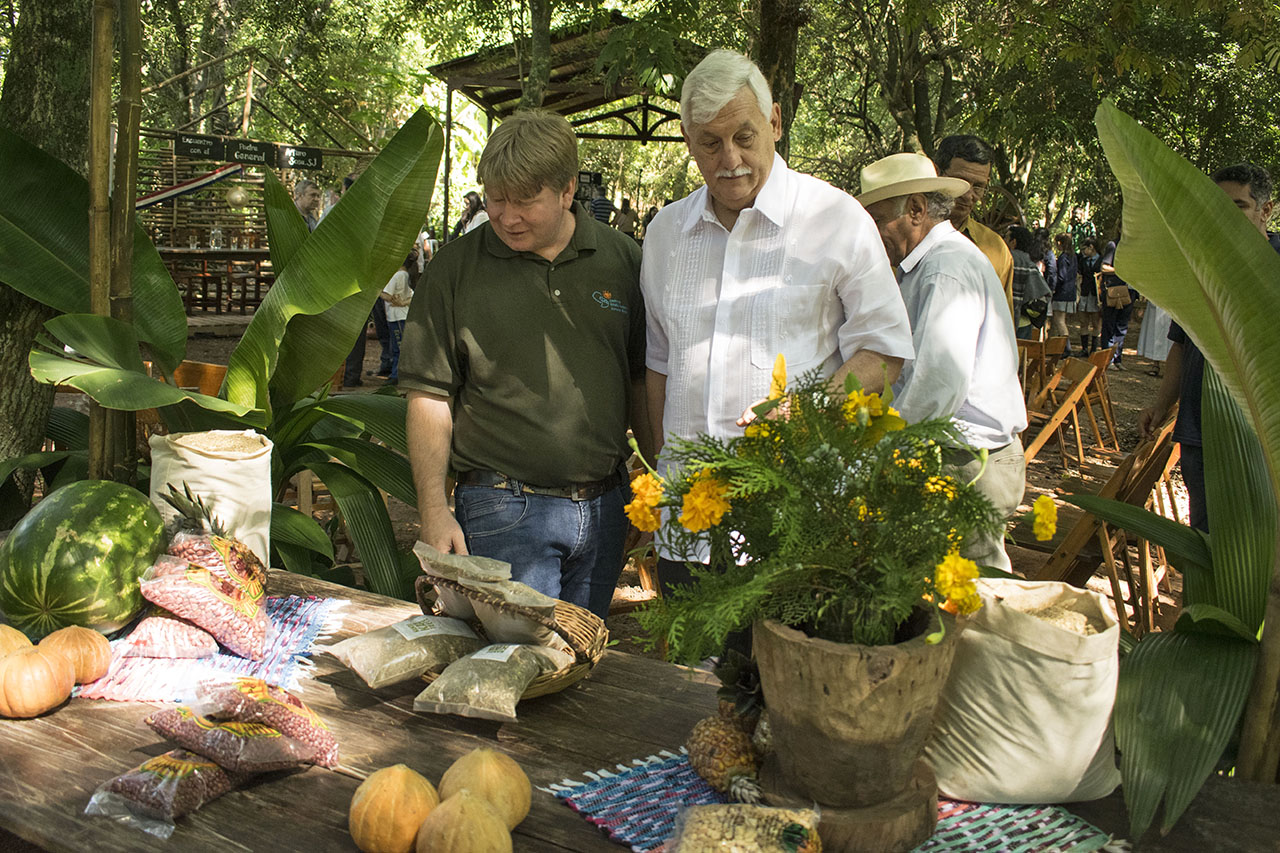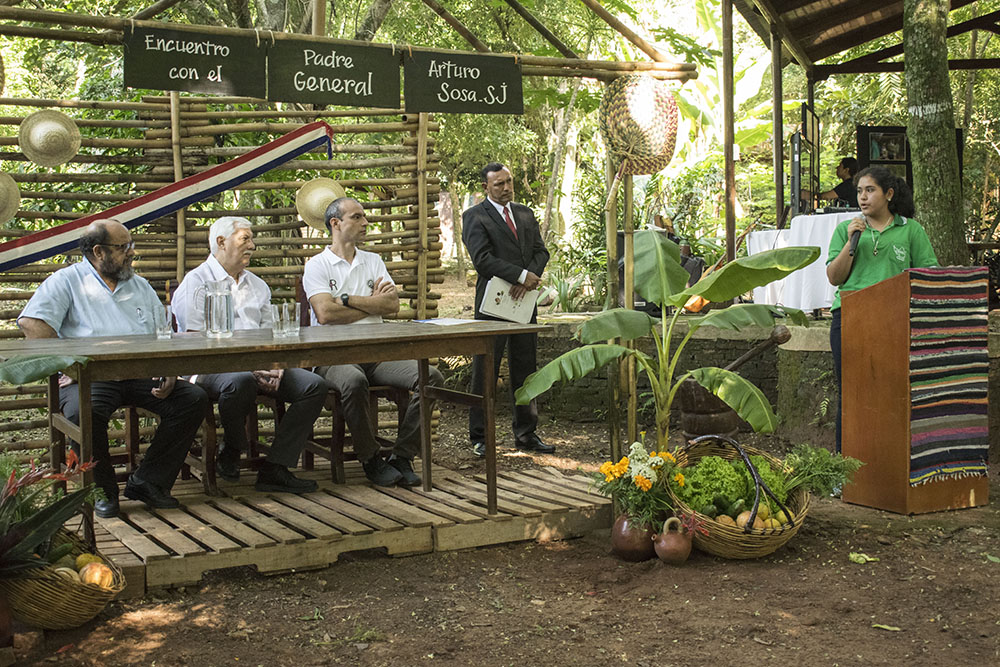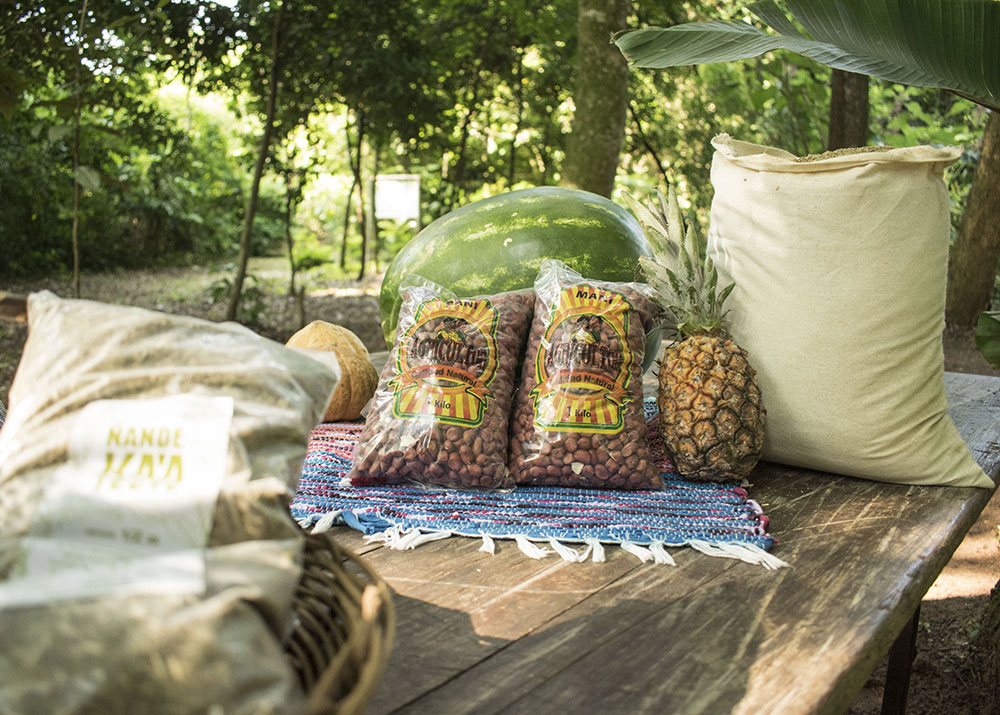The challenge of the Finca Pytu Piro’y: to become a model agro-ecological space

The Province of Paraguay has a centre for social studies. So far, that is nothing very original since reflection and social action have been part of the Society’s fields of activity for more than fifty years almost everywhere in the world. But not all social centres are concretely involved in an ecological agriculture project. This is the case with CEPAG, the Centro de Estudios Paraguayos Padre Antonio Guasch. This institution is recognized in Paraguay for building alternative models of development where social justice, equality and quality of life prevail.
CEPAG’s actions are inspired by the Learning Community proposal called Red Comparte. The Red Comparte (Sharing Network) seeks to consolidate, deepen, and reshape alternative economies as a contribution to the Ignatian vision of seeking the most universal good. Red Comparte is the putting into practice of Ignatian spirituality in the social field.
CEPAG is actively involved in implementing a sustainable production model with an agro-ecological approach. To this end, it has created a specialized research and validation centre for peasant technology. This is how the Finca Pytu Piro’y (“fresh breath ranch,” in Guarani and Spanish) was born. It is a space where research and demonstrations of agro-ecological practices are carried out, which will then be applied in the peasant farms with which the CEPAG collaborates. It welcomes mainly farmers and young people who are interested in learning about farming practices that respect nature and are in harmony with the care of our “common home”.

The Jesuits who are involved in the project at the social centre and the farm are not lacking in ambition: they want the farm to become an ecotourism site in San Ignacio, which is located in the Departamento de Misiones. As a model farm, its influence would then reach a large number of people who visit the Jesuit Reductions. It will contribute even more to spreading the spirit of the encyclical Laudato Si’.
In a similar perspective, and more broadly, the Jesuit social sector in Paraguay pays particular attention to campesinos, small agricultural producers. As in several Latin American countries, major corporations have taken over very large areas of arable land. There, monoculture reigns, soybeans for example. This large-scale agriculture often uses pesticides and other chemicals. Moreover, production is essentially for export; it does not benefit local farmers or consumers. Thus, through its training programs and concrete support based on experiences such as the Finca Pytu Piro’y, the Society of Jesus promotes organic farming, for which a market is developing in Paraguay as it is everywhere in the world. This type of commitment is consistent with many of the objectives of the Universal Apostolic Preferences.








